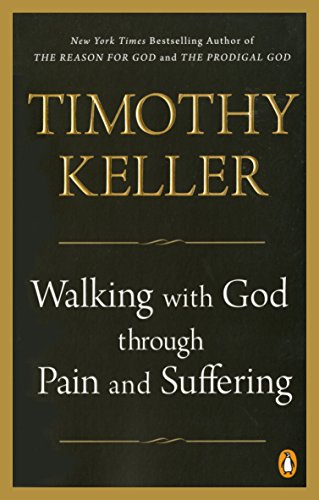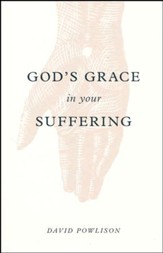Quotes about Faith-Trials
Let Him therefore send and do what He will. By His grace, if we are His, we will face it, bow to it, accept it, and give thanks for it. God’s Providence is always executed in the ‘wisest manner’ possible. We are often unable to see and understand the reasons and causes for specific events in our lives, in the lives of others, or in the history of the world. But our lack of understanding does not prevent us from believing God.
If I had not felt certain that every trial was ordered by infinite love and mercy, I could not have survived my accumulated sufferings.
For if [a Christian] cannot thank and praise God as well in calamities and sufferings as in prosperity and happiness, he is as far from the piety of a Christian as he that only loves them that love him is from the charity of a Christian. For to thank God only for such things as you like is no more a proper act of piety than to believe only what you see is an act of faith. Resignation and thanksgiving to God are only acts of piety when they are acts of faith, trust and confidence in the divine goodness.
The beginning of anxiety is the end of faith, and the beginning of true faith is the end of anxiety.
The only way to learn strong faith is to endure great trials. I have learned my faith by standing firm amid severe testings.
Faith upholds a Christian under all trials, by assuring him that every painful dispensation is under the direction of his Lord; that chastisements are a token of His love; that the season, measure, and continuance of his sufferings, are appointed by Infinite Wisdom, and designed to work for his everlasting good; and that grace and strength shall be afforded him, according to his need.
“Saved Alone” was the message that Horatio Spafford received from his wife after the ship sank that was taking her and their four children to England in November, 1873. After reuniting with his grieving wife at sea, the boat came near the area where his children had drowned. It is speculated that at that time he wrote the words (contained in his famous hymn) that vividly described his own grief and faith: “When sorrows like sea billows roll – Whatever my lot Thou hast taught me to say, it is well, it is well with my soul” (Phyllis LaPeau).
Stop complaining about the stakes in your flesh and start turning them to your advantage by seeing them as conduits of God’s strength and sufficient grace.
Used by Permission of Desiring God. http://www.desiringgod.org/articles/don-t-waste-your-weaknesses-in-2014
The deepest need that you and I have in weakness and adversity is not quick relief, but the well-grounded confidence that what is happening to us is part of the greatest purpose of God in the universe–the glorification of the grace and power of his Son–the grace and power that bore him to the cross and kept him there until the work of love was done.
There is nothing – no circumstance, no trouble, no testing – that can ever touch me until, first of all, it has gone past God and past Christ right through to me. If it has come that far, it has come with a great purpose, which I may not understand at the moment. But as I refuse to become panicky, as I lift up my eyes to Him and accept it as coming from the throne of God for some great purpose of blessing to my own heart, no sorrow will ever disturb me, no trial will ever disarm me, no circumstance will cause my to fret – for I shall rest in the joy of what my Lord is! That is the rest of victory!
It is an indictment on our pride to think as the created, we can question the Creator’s faithfulness. God is faithful – He’s shown it in the life of Jesus Christ and He declares it cover-to-cover in the Bible. A better question to ask is whether or not we are faithful to Him in tough times with words and actions of obedience that demonstrate it. Are we joyously and productively making the most of the trials with our faith in tact, feet on the narrow path pointed toward the Celestial City, overcoming temptations, eyes firmly fixed on Jesus Christ who is the “author and perfecter of faith” (Heb. 12:2)?
I need to come to grips that God is a better god than me. He is sovereign, not I. It’s His universe and He’s permitted to run it according to His wisdom. In His sovereignty He permits people, at times, to hurt me. Yet without excusing their sin, He has a reason for inflicting pain in my life. It’s my job to trust Him as God, knowing that He has my best interests in mind, working all things together for my ultimate good (Rom. 8:28). It’s not about me becoming bitter over my trials. It’s about Him making me better through my trials.
Therefore when the trial comes (and often remains), we understand that while in the trial we are being firmly held in His wise and loving arms. As the trial humbles us, it manifests a weakness in us that causes us to cast a greater dependence on Him. We are forever weaned of our self-sufficiency and our self-reliance and learn to trust in His resources and not our own. God provides perfectly measured, sufficient grace (His divine assistance through the Holy Spirit) enabling us to remain in the trial with our faith intact. We are enabled to depend more on His strength and not our own. And we are enabled to trust Him for the working of Christlikeness in our lives (Jas. 1:2-4).
Trials can devastate us because we are often looking as to how they are affecting our lives. Yet when we can die to self and desire God’s glory as a result of them, we are given an entirely different outlook. We can actually rejoice if we know God’s name, God’s glory is being magnified as witnessed through our response to the trial. Specifically how? When others see our Christlike attitude – gratitude verses complaining, kindness verses anger, faith verses anxiety, contentment verses greed and joy verses bitterness – God is glorified. It means very little when godly character and spiritual fruit only appear when things are going well in our lives.
We learn throughout the years that God is faithful. You know when God gave new exhortations to the Israelites; often He reminded them of His faithfulness during the Exodus. He wanted the Jews to realize that He could be trusted in the present because of His faithfulness in the past. The same principle applies to our lives as well. The more we see His faithful hand shaping the events of our lives in the past, the more we realize that He can be trusted in the present. In hindsight, we can recall the situations when God either removed a trial or gave us sufficient grace to endure the trial. We can recall the good ways He has shepherded us along life’s journey. He has never disappointed us. Through experience, we learn that God keeps His Word and never fails on His promises. We learn that He is good. We learn that God can be trusted.
Disappointment is essential for spiritual growth. Sadly too many Christians have horrible theology and allow the disappointment to consume them. Instead of growing, they backslide. In the Bible we read that Joseph held to God’s promises despite horrible circumstances. And though Joseph did not specifically know the good that God was doing, he simply trusted God in faith that God was doing something good. Belief can never be predicated on understanding. If so, there would be no need for faith. Little did he know that God was in the process of making this young boy a man. God’s purposes for Joseph would stand despite the long delay. Yet there was a purpose in that delay for God to polish the instrument of God through affliction.
In 1 Peter 1:6 we read, “In this you greatly rejoice, even though now for a little while, if necessary, you have been distressed by various trials.” Only in the Christian faith can we speak of joy and distress in the same sentence! You see, if my faith is to be pure faith, it will weather the fiery tested when tried. And how is that faith proven? It keeps trusting God and thus greatly rejoicing, even when experiencing distress.
To be victorious in the Christian life, we must understand the emotional paradox between our trials and our joy. They are both real and they both exist in tension with each other. We must acknowledge our pain. We are permitted to grieve. But through it all, we are found rejoicing in God, knowing that He is in control, using the trial for our good. As Paul said in 2 Corinthians 6:10, “Sorrowful, yet always rejoicing.”
Any simpleton can follow the narrow path in the light: faith’s rare wisdom enables us to march on in the dark with infallible accuracy, since she places her hand in that of her Great Guide.
Emotion as a result of tragedy is not sin; rejecting God’s sovereignty and responding in anger or impatience is sin. Yes, we accept God’s plan in humble submission, but this doesn’t mean we don’t go before Him to weep and wail.
Cultivate your trust and familiarity with the Lord in prayer now so that when the hammer comes down, when the dam bursts, and when the earthquake hits, the door to the throne room of God is well-oiled and will open easily when you run through it.
Amid trials hard, temptations strong, and troubles constant, true faith is persevering faith.
Conscious of what we might think, God says that strong faith can coexist with emotional highs, lows, and everything in between. It is a myth that faith is always smiling. The truth is that faith often feels like the ordinary process of dragging one foot in front of the other because we are conscious of God.
Depression: A Stubborn Darkness, Punch Press, 2004, p. 31. Get this book!















